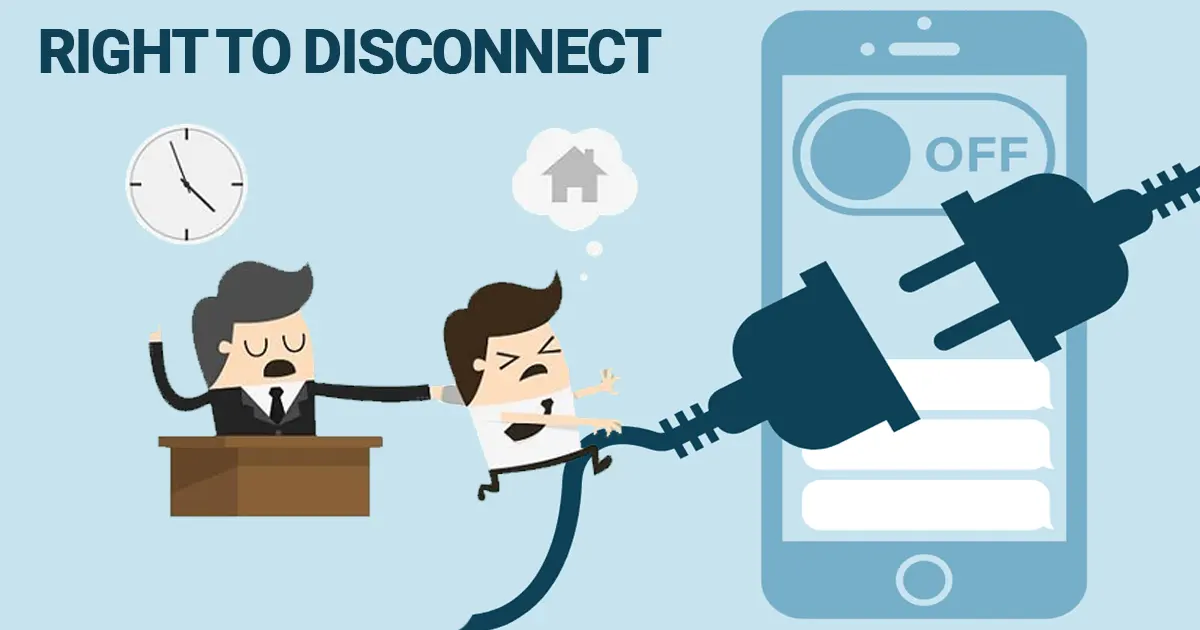GS 2 – GOVERNANCE

The article “Indians Need the Right to Disconnect,” published in The Hindu highlights the growing mental health issues and stress faced by Indian employees due to extended working hours and the inability to disconnect from work after office hours.
Workplace Stress in India: Studies show that Indian women working in fields like IT, media, and auditing often work over 55 hours a week. Workers in marginalized and unorganized sectors endure even worse conditions. One report found that 49% of Indian employees experience workplace stress, which adversely affects their mental health.
What is the Right to Disconnect? The right to disconnect refers to employees’ ability to disengage from work-related communication outside official working hours, ensuring mental well-being and a better work-life balance.
Global Approaches to the Right to Disconnect:
- France: The French Supreme Court ruled that employees are not required to work or respond to communications outside working hours, and not being reachable after hours cannot be deemed misconduct.
- Portugal: It is illegal for employers to contact employees outside of working hours, except in emergencies.
- Spain: Workers have the right to disconnect, which protects their privacy and ensures that their time off, including holidays, is respected.
- Australia: The Fair Work Legislation Amendment grants employees the right to disconnect beyond working hours.
- Ireland: Employees are entitled to disconnect for a healthier work-life balance.
Does India Have Laws for the Right to Disconnect? Currently, India does not have specific laws recognizing the right to disconnect, though the Constitution and judicial rulings emphasize the importance of a healthy and dignified work environment.
Constitutional Provisions Supporting Workplace Well-Being:
- Article 38 mandates that the State promote public welfare.
- Article 39(e) directs the State to protect workers’ health and strength.
Judicial Rulings on Workplace Dignity:
- In Vishakha v. State of Rajasthan (1997), the Supreme Court affirmed the right to dignity and set guidelines for ensuring workplace safety.
- In Ravindra Kumar Dhariwal v. Union of India (2021), the Court advocated for reasonable accommodations for workers with disabilities.
- In Praveen Pradhan v. State of Uttaranchal (2012), the High Court asserted that workplace discipline should not involve humiliation or inhumane treatment.
Legislative Action: In 2018, MP Supriya Sule introduced a Private Member Bill in the Lok Sabha to establish the right to disconnect. The bill proposed penalties for companies that violated the provisions, including fines of 1% of total employee remuneration.
Why is the Right to Disconnect Important for India? Recognizing the right to disconnect could improve productivity and support employee well-being. It would foster healthier work environments, strengthening India’s workforce and contributing to the nation’s goal of becoming the third-largest economy by 2030.
Mains Question:
“Workplace stress in India is rising due to long working hours and the inability to disconnect. Discuss the ‘right to disconnect’ and its possible impact on employee well-being and productivity. How can India introduce this right in its legal system?”




